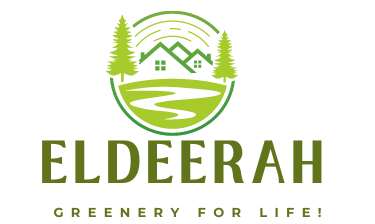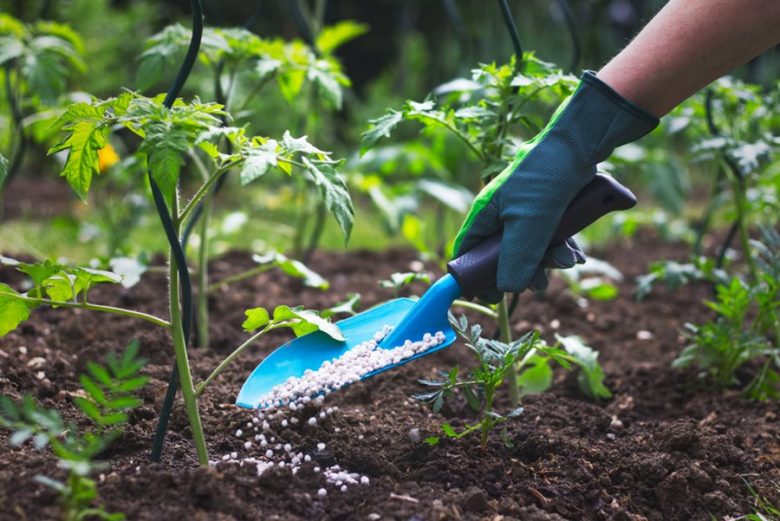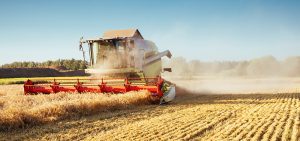Spring marks the start of a new gardening season as the days get longer and temperatures get warmer. Fertilizing is the key to providing your garden with the nutrients your plants need for strong growth and bountiful harvests. However, choosing the right fertilizer for your garden can be overwhelming because there are so many options. In this informative tutorial we look at the different fertilizers, their benefits and how to choose the one that best suits your specific gardening needs.
Understanding Fertilizers
Fertilizers are designed to provide plants with the essential nutrients they need to grow, bloom and produce fruit. These nutrients are divided into three main elements, commonly called NPK: potassium (K), phosphorus (P) and nitrogen (N). In addition to these macronutrients, fertilizers can also contain micronutrients such as iron, zinc and copper, as well as minor nutrients such as calcium, magnesium and sulfur.
Types of Fertilizer
Synthetic Fertilizers: Fertilizers made from inorganic chemicals are called synthetic fertilizers or chemical fertilizers. They are usually sold in granular, liquid or water-soluble form. They can be used to replenish nutrient deficiencies in the soil and ensure that plants can release nutrients quickly. But if misused, they have the potential to leak into rivers and pollute ecosystems.
Organic fertilizers: Organic fertilizers are made from natural materials such as fish emulsion, compost, manure and bone meal. As they break down in the soil, they gradually release nutrients, improving microbial activity and soil structure. Organic fertilizers may take longer to produce results than synthetic fertilizers, but they are sustainable and environmentally friendly.
Slow-release fertilizers: These fertilizers contain nutrients enclosed in a matrix or coating that releases the nutrients gradually over time. These fertilizers reduce the chance of nutrient loss and leaching, while ensuring a continuous supply of nutrients to plants. Slow-release fertilizers are a good choice for busy gardeners who prefer to fertilize less frequently and are suitable for long-term soil fertility.
Liquid Fertilizer: Liquid fertilizer is a concentrated solution mixed with water that is applied directly to the soil or sprayed onto the foliage of plants. They are quickly absorbed by the roots or leaves of plants and immediately provide them with nutrients. Liquid fertilizers can be used for foliar fertilization and are often added to soil fertilizer or used on container plants.
Choosing the Ideal Garden Fertilizer
Assess soil requirements: Perform a soil test to determine the pH and nutrient levels of your soil. With this knowledge you can choose the fertilizer that best suits your plant’s needs and correct any deficiencies. Soil testing is available through online soil testing services and at area Cooperative Extension offices.
Consider nutritional needs: Plants have different nutritional needs at different stages of growth. Depending on the growth phase of your plant, choose the fertilizer formula that best suits its needs. For example, leafy greens need a nitrogen-rich fertilizer, while flowering and fruit-bearing plants need a balanced fertilizer.
Analyze application techniques: Think about the methods you use to fertilize your garden. Liquid fertilizers can be sprayed onto plant leaves or applied directly to the soil, while granular fertilizers are usually spread over the soil surface and watered. Choose a fertilizer combination and application technique based on your gardening habits and tastes.
Consider the environment: If you grow in an environmentally sensitive area or near a river, pay particular attention to the fertilizer you choose and its impact on the environment. Because organic fertilizers improve soil health and reduce the danger of pollution and nutrient loss, they are generally more environmentally friendly than synthetic fertilizers.
Read labels carefully: On fertilizer labels, pay special attention to nutrient content and dosage. To avoid over-fertilization (which can lead to nutrient imbalances and environmental problems), choose a fertilizer that provides the right balance of nutrients for your plants and apply it at the recommended rate.
Check out specialty fertilizers: Depending on your gardening goals and tastes, you may want to consider specialty fertilizers designed for specific plant species or growth stages. For example, liquid fertilizers are good for foliar applications or quick nitrogen additions, but slow-release fertilizers are best for long-term soil fertility.
Conclusion
Choosing the ideal fertilizer for your garden is essential for maintaining soil fertility, promoting healthy plant growth and optimizing yields. When choosing a fertilizer, consider aspects such as soil requirements, nutrient needs, application techniques, environmental impacts and special formulations. You can choose from synthetic fertilizers, organic fertilizers, slow fertilizers and liquid fertilizers. By understanding the different fertilizers and their benefits and making an informed decision, you can ensure that your garden grows throughout the spring and beyond. Good luck with your gardening!
FAQs
1. What is the purpose of fertilization in the spring garden?
Fertilization is necessary for spring gardening because it provides plants with the nutrients they need to develop, bloom and produce fruit. Properly fertilized plants receive the nutrients they need to thrive and produce abundant produce.
2. What are the functions of the main nutrients in fertilizers?
NPK, often abbreviated as nitrogen (N), phosphorus (P) and potassium (K), are the most important nutrients in fertilizers. Potassium improves the overall health and resilience of the plant, phosphorus aids in root development and flowering, and nitrogen promotes leaf growth and green hue.
3. How do I choose the right fertilizer for my garden?
Choose a fertilizer based on the nutritional needs of the soil, the needs of your plants and your gardening tastes. When choosing a fertilizer formula, consider the nutritional needs of your plants and perform a soil test to determine pH and nutrient levels.
4. What is the difference between organic fertilizers and synthetic fertilizers?
Plants can quickly absorb nutrients from fertilizers made from inorganic substances. Organic fertilizers, made from natural sources such as compost, manure and bone meal, gradually release nutrients as they break down in the soil.
5. Are there eco-friendly ways to fertilize your garden?
In general, organic fertilizers are considered more environmentally friendly than synthetic fertilizers because they improve soil health, reduce the dangers of pollution and nutrient loss and encourage the use of sustainable gardening techniques. If you want to fertilize your garden sustainably, look for organic fertilizers from natural sources.



